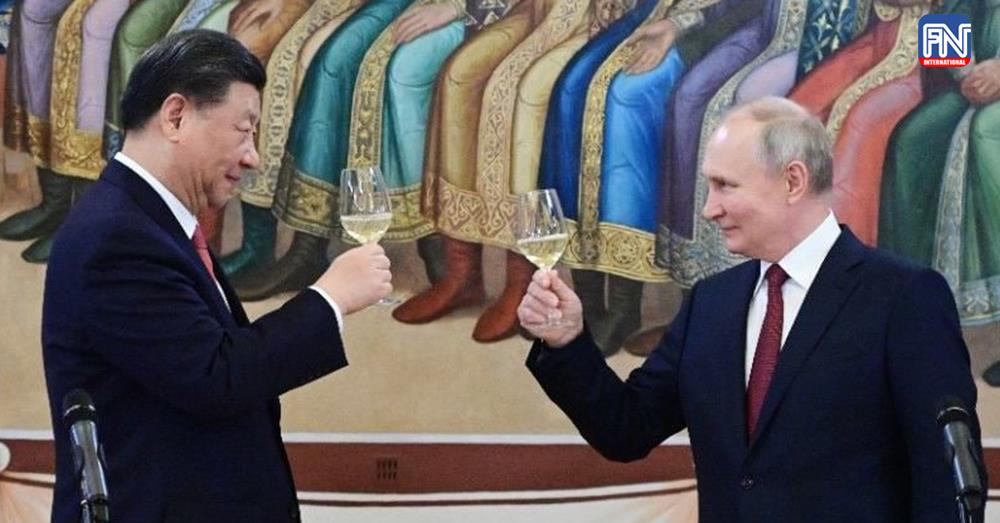MOSCOW, March 22 (AFP) - The leaders of China and Russia hailed a "new era" in their relationship on Tuesday, putting on a united front in Moscow as Vladimir Putin accused the West of rejecting Beijing's proposals to end the Ukraine conflict.
The nations, eager to curb Western power, expressed concerns about NATO expansion in Asia and agreed to deepen a partnership which has grown closer since Putin launched an offensive in Ukraine.
Putin said he was open to talks on Ukraine and praised Beijing's 12-point position paper on the conflict, which includes a call for dialogue and respect for all countries' territorial sovereignty.
"Many of the provisions of the peace plan put forward by China... can be taken as the basis for a peaceful settlement when Kyiv and the West will be ready for it," Putin said after talks with Chinese leader Xi Jinping.
"However, so far we have not seen such readiness on their part."
Moscow and Beijing have over the past years ramped up cooperation, both driven by a desire to counterbalance US global dominance.
The Chinese leader's Moscow visit has been viewed as a boost for Putin, who is subject to an International Criminal Court warrant over accusations of unlawfully deporting Ukrainian children.
"I am sure that Russian-Chinese cooperation has truly unlimited possibilities and prospects," Putin said at a state dinner following the talks, where he toasted the "prosperity" of Russian and Chinese people.
He earlier gushed over the "special nature" of the relationship between the two countries in remarks broadcast on state television.
On the second day of his visit to Moscow, Xi said ties with Russia were "entering a new era".
Putin called the talks "meaningful and frank" and said that Russia, which has been largely cut out of European markets because of sanctions, would be able to meet China's "growing demand" for energy.
Energy is a key focus of Xi's visit, and Putin announced the two countries had reached an agreement on the Power of Siberia 2 gas pipeline, which will connect Siberia to northwest China.
In a joint statement, the two leaders took aim at the West, accusing the United States of undermining global security.
"The parties call on the United States to stop undermining international and regional security and global strategic stability in order to secure its unilateral military advantage," Russia and China said in the declaration.
They also expressed "great concern" over NATO's growing presence in Asia.
On Monday, Xi and Putin held four and a half hours of talks, calling each other "dear friend."
China and Russia have often worked in lockstep at the UN Security Council, using their veto power as permanent council members to counter the West.
Russia's assault on Ukraine has also deepened fears among Western powers that China could one day try to take control of the self-ruled island of Taiwan, which Beijing sees as part of its territory.
China has sought to portray itself as a neutral party in the Ukraine conflict, but Washington has said Beijing's moves could be a "stalling tactic" to help Moscow.
The United States has also accused Beijing of mulling arms exports to Moscow, claims China has vociferously denied.





